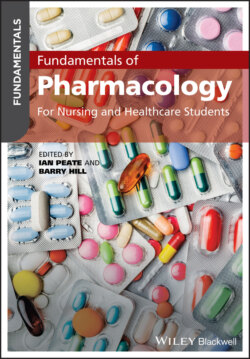Читать книгу Fundamentals of Pharmacology - Группа авторов - Страница 87
Clinical considerations
ОглавлениеA shared decision‐making approach to care has been shown to benefit patients in terms of their active engagement in the treatment plan or taking the prescribed medications (Edwards and Elwyn, 2009). As such, it is an ethical approach to care which has also been shown to reduce the incidences of medico‐legal claims where there is a negative outcome (Studdert et al., 2005). As health professionals, we should always aim to fully involve patients in decisions about drug treatments to maximise engagement and increase the potential for success.
Health professionals also abide by the principle of justice, which is the belief that people should be treated fairly, equally and reasonably. At its heart, justice is about equality; but how equality is determined can be ambiguous and problematic in healthcare. An example of the difficulties posed within this principle is often seen in relation to the fair and equal distribution of resources: ‘distributive justice’. A drug for a specific condition may be available within one healthcare trust but the same drug is not available to patients with the same or similar condition in another trust. Sometimes colloquially labelled the ‘postcode lottery’, this occurs as a result of differing priorities for resources among those who make difficult commissioning decisions about resources on a local level.
Health professionals should also be honest and tell the truth to enable someone to have the full information relevant to them in order to make full rational choices about their care. This is known as veracity and involves conveying accurate and objective information to the patient. Giving patients full information regarding treatment options is the most common application of the veracity principle. Disclosures of medication errors are also an obvious example of veracity, and the recent introduction of the ‘Duty of Candour’ guidance for health professionals (NMC and GMC, 2015) highlights the importance of the veracity principle. Informing patients when something has gone wrong, apologising, and offering a remedy are measures that are advised by Sir Robert Francis in his report on the failings of the Mid‐Staffordshire Health Trust (2013). Francis (2013) stated that candour and transparency are key components of a safe and effective culture for patient care. However, in reality, true veracity is a complex notion. Returning to the example of the drug that is available in one health trust and not another, health professionals engage in such rationing ‘inconspicuously’ (Williamson, 2010, p. 201) without necessarily informing patients that they are being denied something that could benefit them. Aside from the greater ethical issues concerned with who makes the decisions and how they are implemented, there is the more immediate concern relating to veracity and the decision on whether to inform patients.
Finally, the principle of fidelity requires the act of loyalty and trustworthiness; it involves keeping our promises, performing our duties and doing what is expected of us within our relationships with patients. This principle can be conflicted where the health professional's loyalty or obligation may be torn between their patients and colleagues or the organisation for which they work. Conflict may also arise as a result of the patient lacking capacity to make an informed choice and the health professional being compelled to override the wishes of their patient in their best interests.
